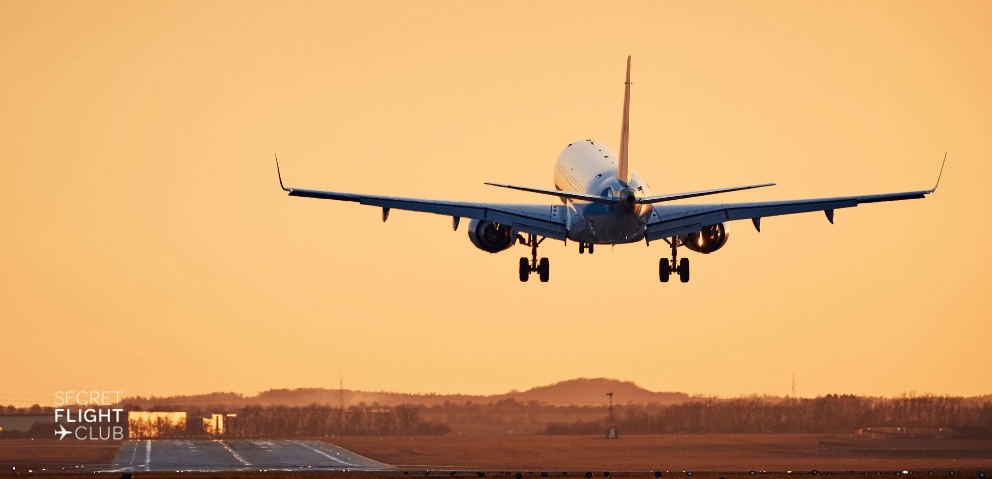Goodbye Paper Boarding Passes: Major Airlines Set 5-Year Deadline
21 January 2025

Paper boarding passes stuffed in passport holders will soon join paper tickets in the travel history books. The latest boarding pass news points to a major change in the industry. Airlines have set an ambitious five-year deadline to phase out traditional boarding passes and replace them with biometric scans and digital alternatives.
Riyadh Air stands at the forefront of this transformation. The airline will become the world's first to implement a fully digital-only approach at the time it launches in summer 2025. Ryanair plans to eliminate paper boarding passes by May 2025. This quick transition has created uncertainty among many travellers, particularly since not everyone owns the latest smartphones.
This piece explores how the digital revolution will shape your future travels. You'll learn about the airline's alternative options and ways to prepare for this paperless future. The discussion includes practical solutions for all types of travellers and addresses common concerns.
The Global Shift Towards Digital Boarding
The air travel industry sees an unprecedented change to digital boarding passes. Research indicates that mobile devices will deliver over 1.5 billion boarding passes by 2025.
Major airlines leading the paperless revolution
Digital adoption rates show impressive numbers across the industry. 53% of airlines now offer mobile boarding passes through their apps. This number should reach 91% by 2024. Several game-changers in the industry report double-digit growth in mobile boarding pass usage.
Current timeline for implementation
The implementation moves faster than predicted. Our industry analysis reveals these important milestones:
- Mobile boarding passes represent 1 in 3 boarding passes issued by airlines
- 60% of passengers use airline apps for check-in and boarding
- Airlines want to reach 80% digital adoption by the end of 2024
International boarding pass regulations and changes
International regulations continue to evolve. The International Air Transport Association (IATA) has created complete standards for digital boarding passes. These standards support various formats including PDF417, Aztec, Datamatrix, and QR codes.
Some international restrictions still apply. Countries like Morocco and Turkey (except Dalaman airport) require printed boarding passes. Airlines must maintain flexible systems that handle these different international requirements while advancing their digital initiatives.
How Different Airlines Are Implementing Changes
Airlines worldwide are turning their digital plans into reality. Each carrier has its own timeline and way of doing things.
Ryanair boarding pass news and policies
Ryanair's latest moves in the digital world are game-changing. The airline's CEO plans to get rid of paper boarding passes by May 2025. Right now, 60% of Ryanair's passengers use their mobile app, and they want this number to reach 80% by year-end. On top of that, some places like Morocco and Turkey (except Dalaman) still need printed passes.
TUI and EasyJet digital initiatives
TUI and EasyJet have teamed up through TUI Musement. Their collaborative effort brings:
- Paperless boarding with QR code scanning
- Push notifications when it's time to board
- Digital platform that works with easyJet's website and app
Air France and other carriers' approaches
Air France has made its digital services better with a complete mobile app. Passengers can now:
- Add boarding passes to digital wallets
- Manage trips through phone widgets
- Get live flight updates
British Airways has brought facial recognition to Heathrow Airport's boarding process. This tech is a great way to get the boarding experience up to speed.
Each airline shapes its digital changes around what its customers need. Delta Airlines leads the way with facial recognition at its Atlanta hub, while TUI combines experience bookings with digital boarding passes.
Practical Guide to Digital Boarding Passes
Your smartphone can now be your boarding pass. Let me show you how to make the best use of digital boarding passes that airlines are rolling out.
How to add boarding passes to digital wallets
Adding a boarding pass to your phone takes just a few steps:
- Open your airline's email or app containing the boarding pass
- Look for the "Add to Wallet" button (Apple) or "Save to Google Pay" (Android)
- Follow the on-screen prompts
- Verify that all details are visible
Managing multiple boarding passes on one device
Without doubt, storing multiple boarding passes on a single device makes travel easier. You can download up to eight passes for people travelling on the same booking. These passes update automatically with gate changes, which helps you stay informed.
Backup options and troubleshooting
Digital passes are convenient, but you should prepare for technical issues. Take a screenshot of your boarding pass as backup and make sure the barcode is completely visible. Here's what you can do to avoid scanning problems:
- Turn up your screen brightness for better readability
- Centre the barcode when scanning
- Keep your device charged before heading to the airport
- Download passes before arriving at the airport for offline access
A printed copy serves as a reliable backup. Most hotels will print your boarding pass free or at a small cost. Some countries like Morocco and Turkey require printed passes.
Note that posting photos of your boarding pass on social media is risky. The barcodes contain sensitive information that hackers could misuse.
Addressing Common Concerns and Challenges
Many travellers have shared their concerns with me about the change to digital boarding passes. Let me help you deal with these worries and share some practical solutions.
Solutions for non-smartphone users
Digital passes are becoming standard, but airlines don't forget about passengers without smartphones. Most airports maintain self-service kiosks and check-in desks where you can print your boarding pass. Public libraries are a great way to get printing services and serve as a reliable backup option.
Battery life and connectivity issues
Running out of battery power at the worst possible time worries us all. Here are my top power-saving tips:
- Download passes for offline access
- Take screenshots as backup
- Keep a portable charger handy
- Adjust screen brightness only when scanning
Dead spots near gates can make it hard to access digital passes. That's why downloading your boarding pass before reaching the airport makes sense.
Privacy and security considerations
Security experts point out several risks with digital passes that need our attention. Here are vital safety measures:
- Never share boarding pass photos on social media
- Protect your frequent flier number and booking reference
- Use biometric authentication when available
- Avoid using public Wi-Fi for accessing passes
Your boarding pass's barcode contains sensitive information, including your passport or driver's licence number. Criminals can exploit this data for identity theft or unauthorised purchases. 85% of American travellers worry about being hacked while travelling, and they have good reason to be concerned.
Conclusion
Airlines are making paper boarding passes a thing of the past as they move toward complete digitalization. This transformation brings new challenges, but airlines have developed practical solutions that work for everyone who travels.
Smart preparation will make your journey smooth in this digital age. Taking screenshots provides reliable backup options. Offline access helps you deal with connection problems. You won't get stranded because most airports' printing services remain available during this transition.
Your digital boarding pass's security is a vital part of modern travel. These passes need the same protection as physical documents. You can keep your travel details safe by staying away from public Wi-Fi and keeping sensitive information private.
This transformation isn't a roadblock - it's a gateway to faster, easier travel. Airlines have shown their steadfast dedication to helping passengers adapt. They offer multiple alternatives and backup options. Tech-savvy travellers and those who prefer traditional methods will find air travel available to them.

